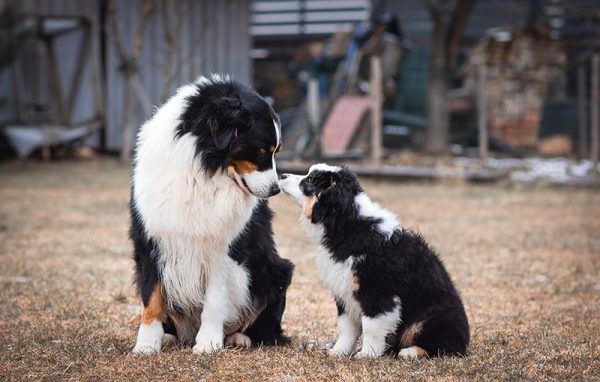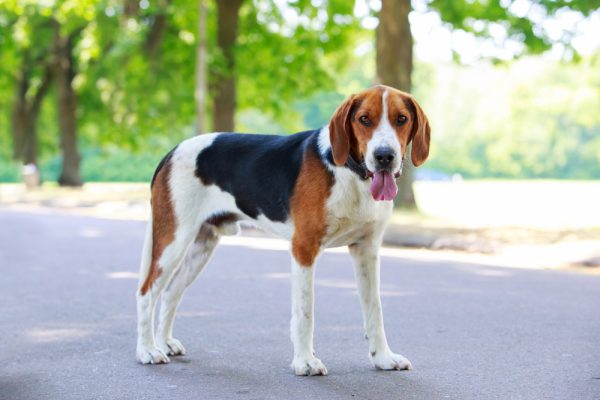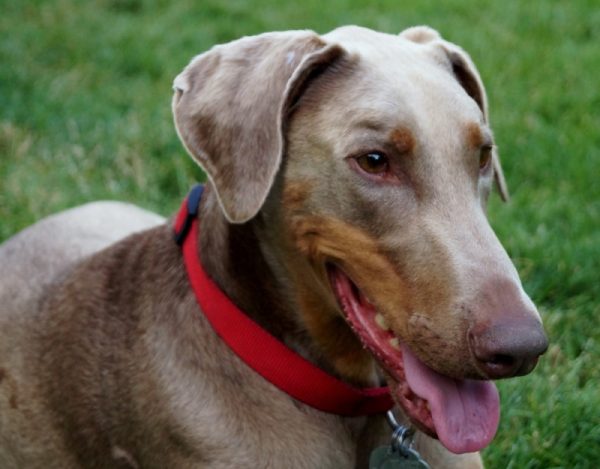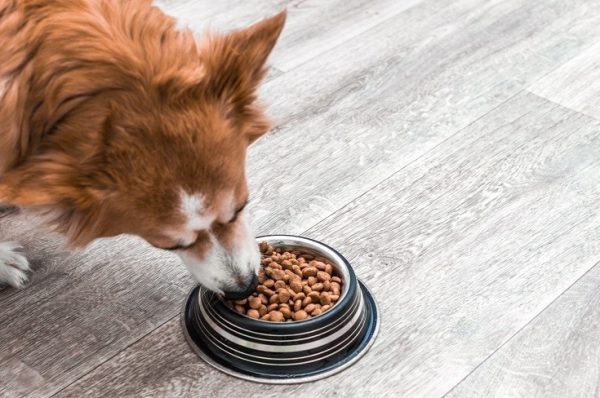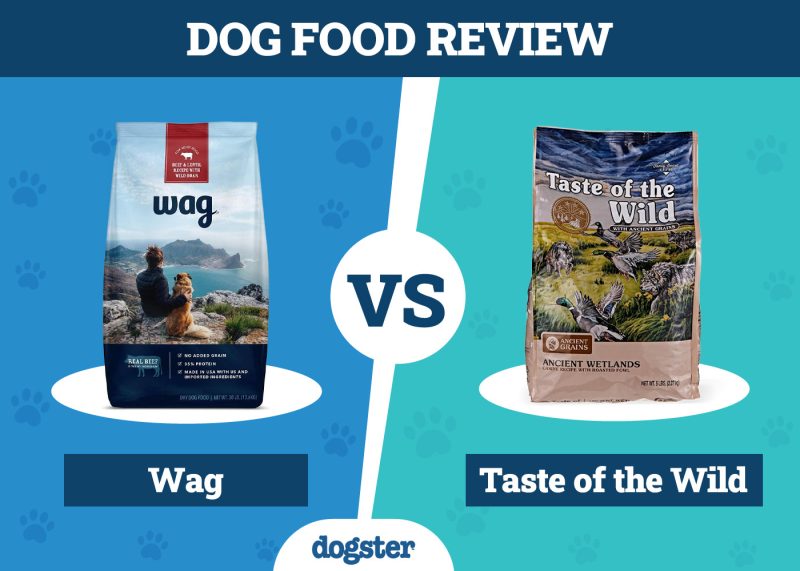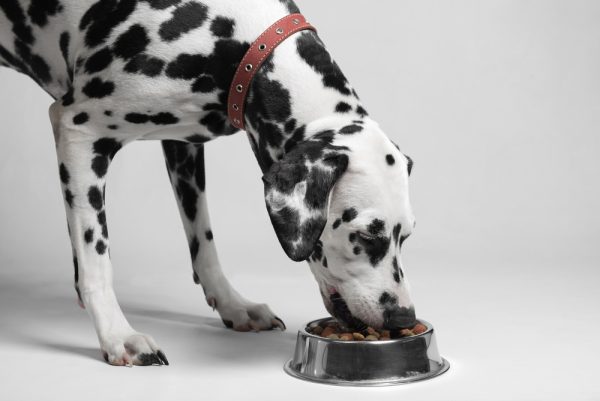Dogs come in all shapes and sizes. When they’re small, fuzzy puppies, they can look similar in size. But as time moves on, we start to really see how quickly some dogs grow compared to others. To put it simply, dogs stop growing anywhere between 6 and 24 months because, as you can tell, it really depends on the breed.
In this guide, we share with you just how long it will take most dogs to reach their full body size, as well as what you need to be aware of along the way. Let’s get into the details.

Understanding Puppy Growth: 3 Important Factors
Puppies, regardless of breed, are considered adult dogs when they turn 1 year old. But here’s a twist: some dogs can take up to a full 2 years to be fully grown, both physically and emotionally.

- Breed: Purebred standards give us weight and height ranges to reference, so we know when our dogs are at their expected size.
- Genetics: Breed gives us an idea of size, but genetics tell us more information about the dog. We can know how big or small the parents were, what the other puppies in the litter grew to, and much more.
- Gender: Males tend to be larger than females. So, expect a girl pup to be on the lower end of the spectrum for her breed if she’s a purebred.

How Can I Tell How Big My Puppy Will Be? Puppy Growth Chart (By Percentage)
| Small (0–20 lbs) | Medium (21–50 lbs) | Large (51–100 lbs) | X-Large (100+ lbs) | |
| 6 Months | 75% fully grown | 66% | 60% | 50% |
| 9 Months | 90% | 85% | 75% | 65% |
| 12 Months | 100% | 95% | 85% | 80% |
| 15 Months | 100% | 100% | 95% | 90% |
| 18 Months | 100% | 100% | 100% | 100% |
Information from the AKC. All numbers are approximate.
Looking at the chart, you can see that large breeds take longer to reach adult size than small dogs. In fact, they need almost twice the length of time to grow—almost 2 years. On the other hand, small dogs only need between 6 and 12 months.
Regardless of the length of time, dogs are generally considered young adults when they reach 1 year old, even if they’re not done growing. At this stage, your dog is in what’s called the adolescent period. Look at it this way: Human teenagers are deemed “fully grown” even if they have a little growing left to do, both physically and emotionally, and it’s the same with dogs.

What About Mixed Breeds?
A dog’s breed is the most common way to guess a dog’s final size, and that’s largely due to predictability. However, with mixed breeds, we don’t get the same consistency in size, shape, or even coat color.
DNA tests can offer information into your dog’s genetic makeup, so you know more about potential health risks, character traits, and their potential adult size. You can even sometimes discover your dog’s relatives.
The price of a DNA test varies based on how much information you want, but even the most basic panel will give you some information that will help you determine how big your dog will be.
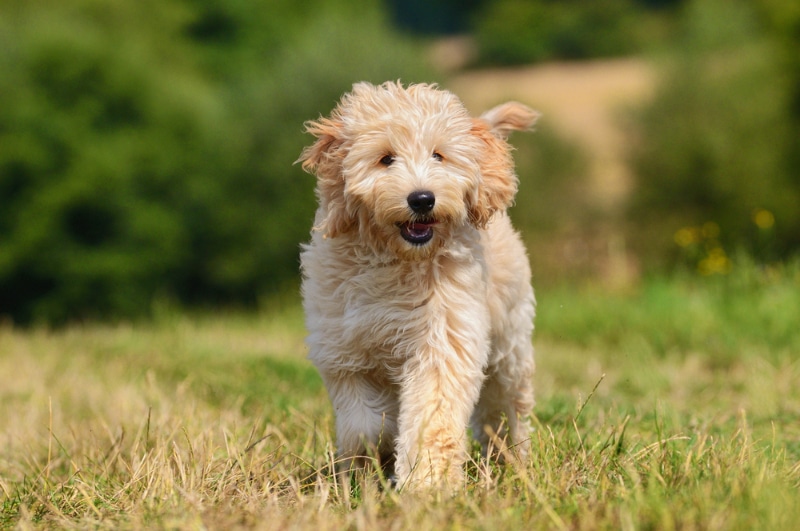
How Can You Tell When a Puppy Is All Grown Up?
It’s tough to know just how old your puppy is if they’re a rescue. Even if you’ve had your puppy from day one, how can you be sure they’re fully grown?
One thing is for certain: you can’t tell a dog’s size by the paws. That is an unfortunate myth. Your vet can check whether they have all their adult teeth but this is usually by the age of 6-7 months and so doesn’t necessarily mean they are fully grown.
Feeling the ribs and their growth plates can sometimes be used to help indicate if a puppy is fully grown. If you run your hands down your dog’s rib cage and you can still feel knobs at the edge of the bones, these are the growth plates that are still hardening suggesting that your puppy still has more growing to do.
Keep in mind that even when bones are fully developed a puppy will continue to develop fat and muscle.

What Causes a Puppy to Stop Growing?
A healthy puppy will grow steadily with no interruptions. Puppies that are not growing at a normal rate or are too small for their age are deemed stunted and need a thorough vet exam to diagnose and address the underlying cause. Here are some of the common things that may cause a puppy to stop growing at a normal rate.
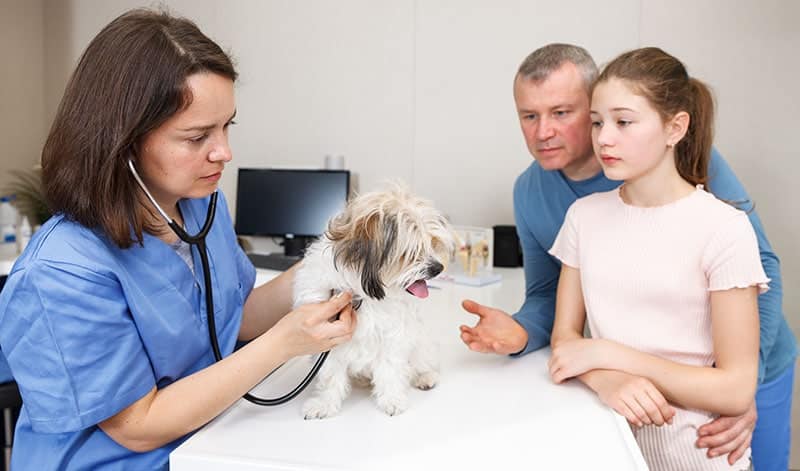
Intestinal Parasites
Hookworms and roundworms are the number one reason for causing a delay in a puppy’s growth. Puppies contract worms from their mother or environment and become infested. A heavy infestation can reduce a puppy’s absorption of important nutrients needed for growth.
- Dull coat
- Diarrhea
- Swollen belly
- Listlessness
- Weight loss
Other parasites like Giardia species and coccidia can also cause stunted growth.
Malnutrition
Poor nutrition can cause a stunt in your puppy’s growth from the lack of essential nutrients necessary for proper development. This can be from a puppy not eating enough or a poor quality, unbalanced diet.

Congenital and Inherited Disorders
Congenital and hereditary disorders can affect many different body systems and affect a puppy’s growth.
For example pituitary dwarfism, a rare condition which most frequently occurs in German Shepherds, is caused by a lack of growth hormone. Congenital portosystemic shunts (liver shunts), when blood bypasses the liver meaning that dogs are not able to use the nutrients from the gut, also cause poor growth and stunting.

Tips for Helping Your Puppy Blossom
Raising a puppy always comes with challenges, but by following these tips, you can make the experience a bit easier.
Choose the Right Food

Growing puppies have specific nutritional requirements that are different from adult dogs. They are particularly sensitive to nutritional imbalances that can cause poor growth amongst other health concerns. Feed a good quality complete puppy food formulated for growth. For large and giant breed puppies consider choosing a puppy food especially formulated for large and giant breeds.
Weigh Puppies Regularly
Weighing your puppy at least monthly can help you monitor their growth. Waltham Puppy Growth Charts are a resource you can use to help you monitor that your puppy is on track, comparing your puppy to standard healthy growth curves. Your veterinarian is also a good source of advice and support.
Limit High Impact Exercise
Exercising your puppy is essential, but while they are growing it is important not to over-exercise them and to avoid high-intensity and high impact activities. This is to avoid damage to their growing joints and bones. Limit high-impact exercise like jumping, twisting and skidding and seek advice from your vet about appropriate exercise levels for your age and breed of pup.
If you need to speak with a vet but can't get to one, head over to PangoVet. It's our online service where you can talk to a vet online and get the advice you need for your dog — all at an affordable price!
Preventative Healthcare
Regular vet checkups, vaccinations, and a suitable deworming schedule are all important for keeping your puppy healthy and happy.

Conclusion
Dogs are usually considered young adults when they reach 1 year old, even if they have more growing to do. If you have a small breed dog, your dog won’t take much time to grow.
Large breeds, on the other hand, will need a little more time. With proper nutrition, healthcare, and love, your puppy will blossom into a healthy adult in no time.
Featured Image Credit: Abramova Kseniya, Shutterstock




